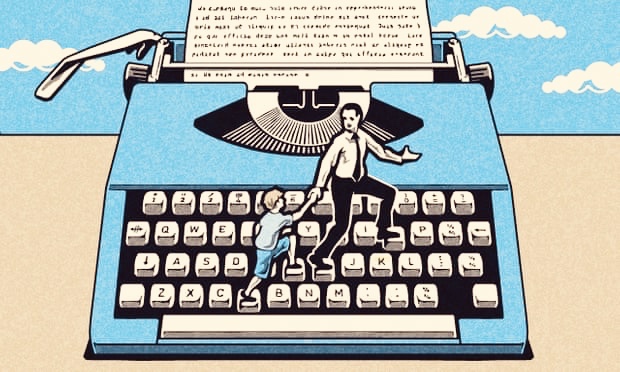The launch of Salman Rushdie‘s memoirs, Joseph Anton, written in third person, has seen a flurry of TV interviews, and profiles, reviews and soft stories in the newspapers.
Hindustan Times runs this short excerpt from the book which chronicles how The Satanic Verses ended up getting banned in India:
On the day he received the bound proofs of The Satanic Verses he was visited at home on St Peter’s Street by a journalist he thought of as a friend, Madhu Jain of India Today.
When she saw the thick, dark blue cover with the large red title she grew extremely excited, and pleaded to be given a copy so that she could read it while on holiday in England with her husband. And once she had read it she demanded that she be allowed to interview him and that India Today be allowed to publish an extract.
Again, he agreed.
For many years afterwards he thought of this publication as the match that lit the fire.
And certainly the magazine highlighted what came to be seen as the book’s ‘controversial’ aspects, using the headline AN UNEQUIVOCAL ATTACK ON RELIGIOUS FUNDAMENTALISM, which was the first of innumerable inaccurate descriptions of the book’s contents, and, in another headline, ascribing a quote to him – MY THEME IS FANATICISM – that further misrepresented the work.
The last sentence of the article, ‘The Satanic Verses is bound to trigger an avalanche of protests…’ was an open invitation for those protests to begin.
Madhu Jain offers an explanation in Open magazine:
When I returned to Delhi my editor in India Today asked me to write a review before anybody else did. Since the book was yet to be launched, I called Salman in London for permission to publish a review. He said yes….
Unfortunately, the editor of the books pages of the magazine at the time, who later went on to edit a national daily, plucked some of the more volatile extracts from the novel—those about the Prophet’s wives—and inserted them into the book review.
Not too long after the IFS bureaucrat-turned-politician Syed Shahabuddin read the excerpts (not the book as he admitted ) and demanded that The Satanic Verses be banned. Protests erupted in India and Pakistan.
In Karachi, a few protesters died when they were fired upon. It is believed that Ayatollah Khomeini watched this on television and ordered the fatwa.
Madhu Jain writes that Rushdie stopped talking to her after the review and even snubbed her when she offered an explanation of what had happened.
But in Joseph Anton (pages 112-13), Rushdie writes:
“With the passage of time came forgiveness. Rereading the India Today piece many years later, in a calmer time, he would concede the piece was fairer than the magazine’s headline writer had made it look, more balanced than its last sentence. Those who wished to be offended would have been offended anyway. Those who were looking to be inflamed would have found the necessary spark.
“Perhaps the magazine’s most damaging act was to break the traditional publishing embargo and print its piece nine days before the book’s publication, at a time when not a single copy had arrived in India. This allowed Mr Shahabuddin and his ally, another opposition MP named Khurshid Alam Khan, free rein. They could say whatever they pleased about the book, but it could not be read and therefore could not be defended.
“One man who had read an advance copy, the journalist Khushwant Singh, called for a ban in the Illustrated Weekly of India as a measure to prevent trouble. He thus became the first member of the small group of world writers who joined the censorship lobby. Khushwant Singh further claimed that he had been asked for his advice by Penguin and had warned the author and publishers of the consequences of publication.
“The author was unaware of any such warning. if it was ever given, it was never received.”
Read the HT review: Joseph Anton
Madhu Jain: The deadly review








Madhu Jain also reviewed my novel “The Revised Kama Sutra” in India Today, http://bit.ly/eFzXjn , and it was a reasonably good review (though Tarun Tejpal later told me he wished he had reviewed it himself). But starting in 2000, India Today’s reviews became wildly arbitrary, inaccurate, capricious, and personal: the review of “What We All Need”, which is an anthology of fiction and nonfiction, claims that it is a novel, and that all of my works imitate Kurt Vonnegut and Henry Miller (What? “Impressing the Whites”? ). Power had induced a sort of arrogance and a disdain for facts. What they and all good newspapers and magazines need is a fact-checking department and a fairness and objectivity checking department to vet everything before it is published: no matter how high the position of the person who wrote it.
From this it appears, India Today sensationalized the book and perhaps even provoked the aftermath. Kushwant Singh had contributed in no small measure to Salman Rushidie’s fate. It was he who advised Rajiv Gandhi to ban the book in India. Singh too obviously did not read the book but advised its ‘ban’.based on its reviews. Was it India Today’s review or some other review that he relied on to tender his advice?
For the record the book was not officially banned in India. Its import that was prohibited under the customs act. Nevertheless, it was the Indian governments ‘act’ that attracted attention in Iran leading to Khomeini’s infamous fatwa.that condemned Rushidie into incognito living for at least a decade.
So who was the editor of the Books section of India Today in the 1980s who was the root of all the problem ?
Shekhar Gupta, perhaps.